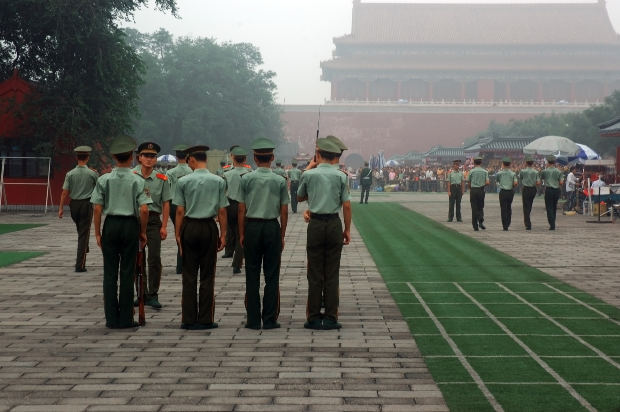
July 10, 2013, by Tony Hong
How Difficult Is It to Obtain Government Information in China?
Dr. Yiyi Lu,
Senior Research Fellow at the Beijing-based think tank ChangCe.
During the height of the anti-Japan protests in China last year triggered by the Sino-Japanese territorial dispute over Diaoyu/Senkaku islands, a Chinese environmental NGO submitted a request for environmental pollution data to a provincial Environmental Protection Bureau. An official responded by telling the NGO: “Why do you concern yourselves with this issue? Why not direct your attention to the island dispute instead?”
This ridiculous attempt to avoid meeting a normal request for government information highlights the obstacles faced by Chinese citizens when they try to exercise their right to information according to China’s Regulation on Open Government information. The Regulation, which came into force in May 2008, has greatly raised public awareness of the government’s responsibility to supply information to citizens and has contributed significantly to improving government transparency.
However, many legitimate requests for information continue to be rejected by government agencies under pretexts such as the information sought would negatively affect social stability if released.
Bureaucracies everywhere are prone to a culture of secrecy and are often reluctant to give out information without a fight. China is not alone in facing multiple challenges in implementing its open government information regulation. However, at a workshop I organized last year, the experiences of applying for government information shared by NGOs, lawyers and scholars indicate that two problems are particularly salient in China at present.
The first problem is the high degree of arbitrariness in government agencies’ response to information requests. In December 2011, the environmental NGO Wuhu Ecology Center (WEC) submitted a request to 31 provincial Environmental Protection Bureaus (EPB) for the list of factories in each province that are major emitters of toxic chemical compounds known as dioxins. The responses WEC received from different EPBs to the same request couldn’t have been more divergent. Hunan provincial EPB said that it was still waiting for advice from the Ministry of Environmental Protection on this issue and therefore couldn’t give a reply to WEC. Hainan EPB refused to release the list on grounds that it was government deliberative information, which is exempt from the disclosure requirement. Beijing EPB decided that the information sought involved state secrets. Shanghai EPB determined that the information fell outside the purview of the Open Government Information Regulation. Jiangxi Province replied that it was unable to provide the information because the list was being compiled and not yet existed. Tianjin EPB claimed that it did not have the capacity to test the emission of dioxins. Therefore it could not produce a list of major emitters. Xinjiang Uighur Autonomous Region informed WEC that publishing the list might negatively affect social stability in Xinjiang. Its release was inadvisable.
The most interesting response came from Henan provincial EPB, who told WEC that it had requested deliberative information that was not covered by the Open Government Information Regulation. In fact, a government circular on Henan EPB’s website already contained names of dioxins emitters in the province. In other words, the EPB had rejected WEC’s request for information which it had already proactively disclosed.
The second salient problem encountered by applicants for government information is the extraordinary unscrupulousness of some agencies and officials in trying to thwart legitimate requests. One NGO was asked by the government agency receiving its application to submit documents to explain what kind of organization it was. The NGO duly prepared the documents and stamped its seal on them to vouch for their authenticity, but the agency refused to accept the documents, arguing: “How can we tell the seal is not forged?”
One central government agency avoided releasing information by referring the applicant to two documents that had already been made public. However, the documents didn’t contain the requested information. The applicant therefore re-submitted the request. This time the agency rejected the request straightaway, citing a central government guideline that says administrative agencies do not have to respond if the same applicant re-submits the same request to the same agency repeatedly.
Another central government ministry contacted the university whose students had filed a number of information requests, claiming that it was overburdened by the requests and asking the university to make the students withdraw their requests. Other agencies have taken a more direct approach. An applicant in Beijing applied to the Bureau of Ocean and Fisheries in the Northeastern port city of Dalian for local marine environment monitoring data between 1992 and 2002. The Bureau told her to travel to their office and search for the information herself, because they did not have time to do the search for her. Some officials simply hung up the phone as soon as applicants explained that they were looking for information.
Free access to government information cannot be achieved overnight. Nobody at the workshop expected the government to satisfy all public demands for information immediately. However, there was much resentment towards administrative agencies and officials who arbitrarily turn down well-justified applications for information and do not even pretend to handle requests according to the law. As one participant said: “What really makes you angry is not that your requests are rejected, but that they are not even rejected in a decent manner.”
Chinese NGOs, lawyers and legal scholars hope that the government’s slogan “Disclosure of information shall be the principle; non-disclosure the exception” can become a reality one day. Before it happens, they ask that at the very least, the government should ensure that bureaucrats follow standard procedures when processing information requests, and obvious violations of the Open Government Information Regulation should not go unpunished.
No comments yet, fill out a comment to be the first

Leave a Reply